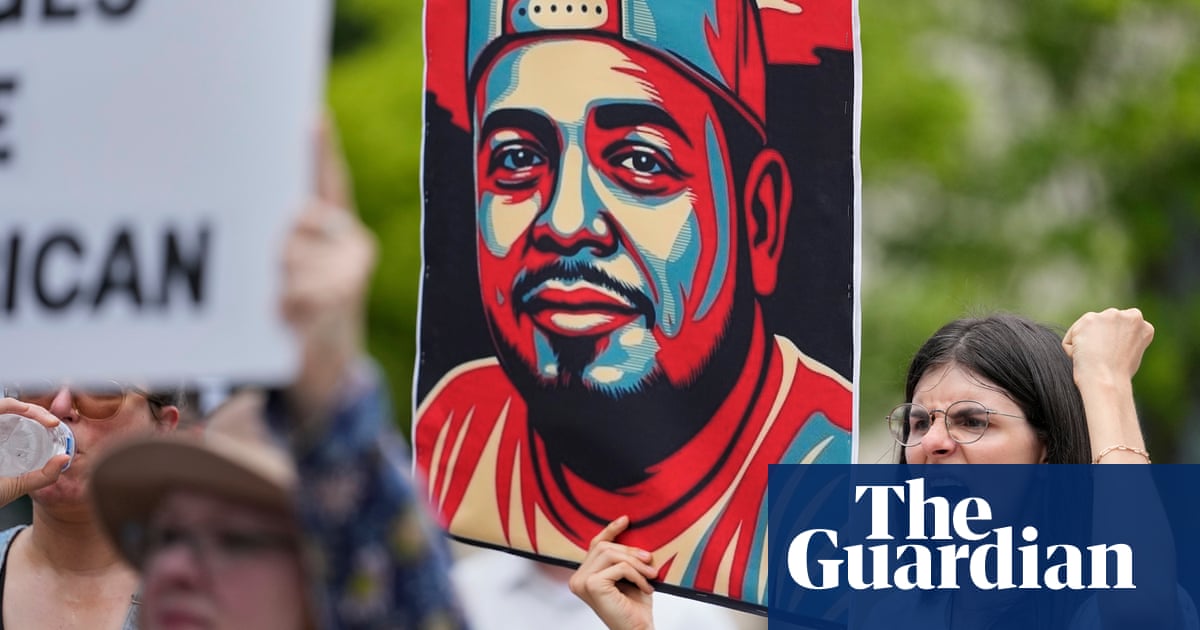Kilmar Ábrego García, the Maryland man who was wrongfully deported to El Salvador and detained in one of that country’s most notorious prisons, was physically and psychologically tortured during the three months he spent in Salvadorian custody, according to new court documents filed Wednesday.
While being held at the so-called Terrorism Confinement Center (Cecot) inEl Salvador, Ábrego García and 20 other men “were forced to kneel from approximately 9:00 PM to 6:00 AM”, according to the court papers filed by his lawyers in the federal district court in Maryland.
Guards struck anyone who fell from exhaustion while kneeling, and during that time, “Ábrego García was denied bathroom access and soiled himself”, according to the filing.
Detainees were held in an overcrowded cell with no windows, and bright lights on 24 hours a day. They were confined to metal bunk beds with no mattresses.
Ábrego García’s testimony is one of the first detailed insights the world has into the conditions inside Cecot, a megaprison that human rights groups say is designed to disappear people.
His lawyers say he lost 31 pounds during his first two weeks of confinement. Later, they write, he and four others were transferred to a different part of the prison “where they were photographed with mattresses and better food–photos that appeared to be staged to document improved conditions”.
The filings also note that officials within the prison acknowledged that Ábrego García was not a gang member, and that his tattoos did not indicate a gang affiliation. “Prison officials explicitly acknowledged that plaintiff Ábrego García’s tattoos were not gang-related, telling him ‘your tattoos are fine,’” per the filing, and they kept him in a cell separate from those accused of gang membership.
The prison officials, however, threatened to move Ábrego García into a cell with gang members whom officials said “would ‘tear’ him apart”.
Ábrego García is currently in federal custody in Nashville. The Trump administration brought him back from El Salvador after initially claiming it was powerless to do so. The US justice department wants him to stand trial onhuman-smuggling charges. The administration has also accused him of being a member of the street gang MS-13, and Donald Trump has claimed that Ábrego García’s tattoos indicate that he belonged to the gang.
Ábrego García has pleaded not guilty to the smuggling charges, which his attorneys have characterized as an attempt to justify the administration’s mistake in deporting him after the fact.
On Sunday , a Tennessee judge ordered his release while his criminal case plays out, but prosecutors said US Immigration and Customs Enforcement (Ice) would take Ábrego García into custody if that were to happen and he would be deported before he was given the chance to stand trial.
A justice department lawyer, Jonathan Guynn, also told a federal judge in Maryland that the administration would deport Ábrego García not to El Salvador but to another, third country – contradicting statements from attorney general Pam Bondi that he would be sent to El Salvador.
Amid the confusion, Ábrego García’s lawyers requested that their client remain in criminal custody, fearing that if he were released, he would be deported. Upcoming hearings in both Maryland and Tennessee will help decide whether Ábrego García will be able to remain in the US and be released from jail.
